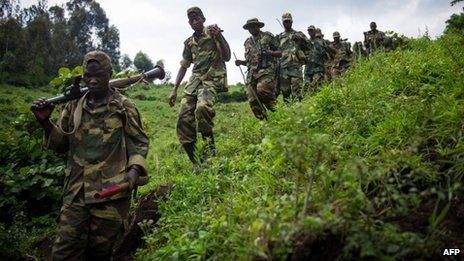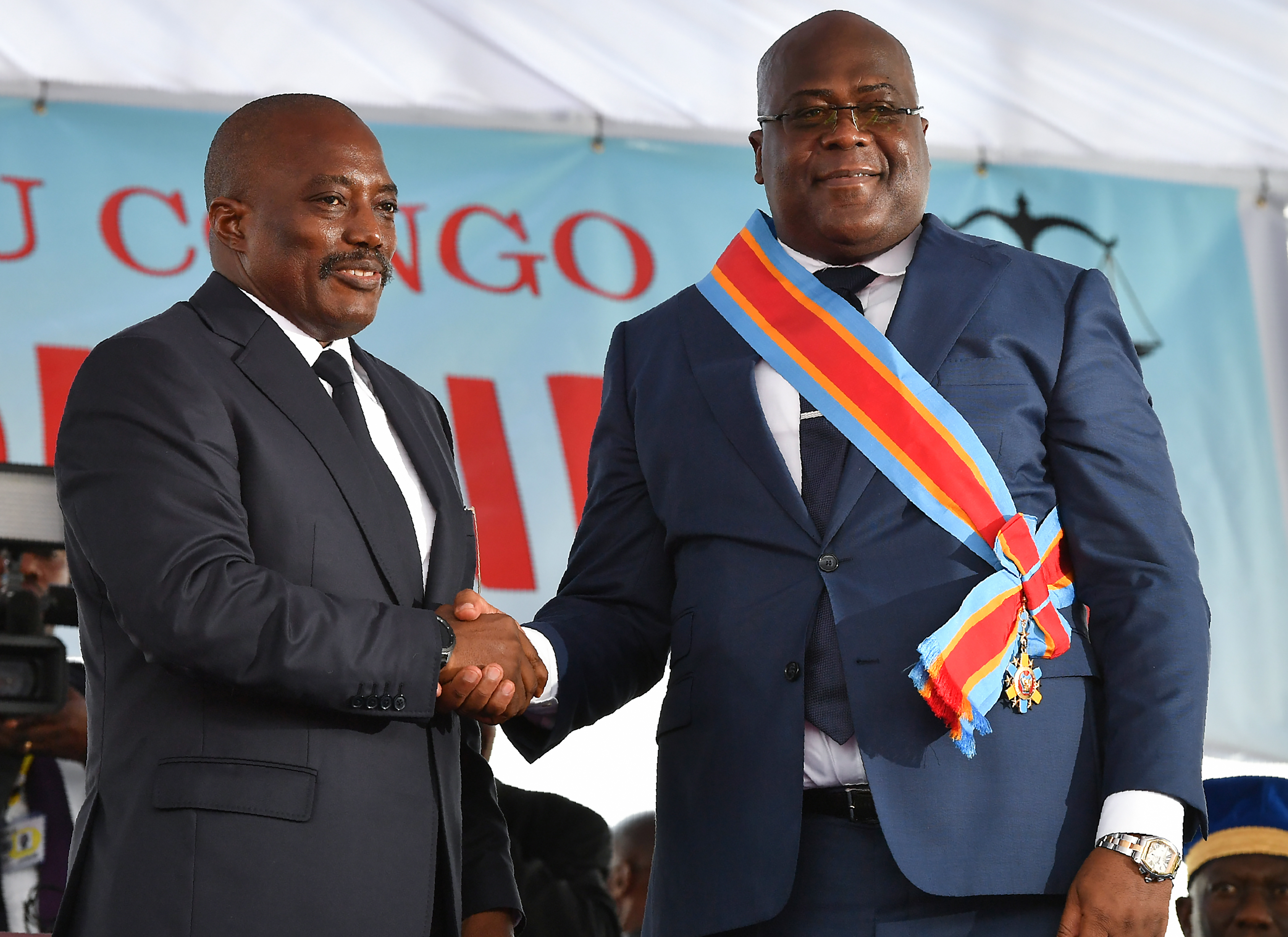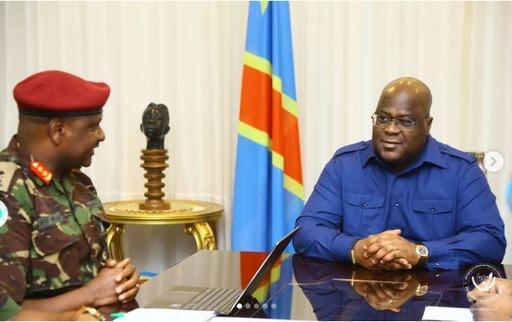Regional
Why the M23 rebels are fighting

The
resurgence of the M23 rebellion in the east of the Democratic Republic of Congo
since late 2021, after nearly a decade of silence following their defeat in 2013
has been given worldwide attention.
The
M23 is now a hot topic in the international media and for informed as well as
so uninformed political commentators. It
has become a subject of debate in international parliaments, and most
importantly, a particular scapegoat for Kinshasa.
But
for many, the big question remains; why is the M23 really fighting?
For
some, it is not a complicated question to answer. The rebel group is fighting
for the rights of its persecuted and disowned community to be recognized as legitimate
citizens with full rights as any other Congolese nationals.
The
rebels are fighting so as to protect the lives of Congolese Tutsi and
Rwandophones who are now targets of hate speech and violence orchestrated by
their own state or government.
Hundreds
have, so far, been murdered in various parts of eastern DRC.
Taking
a look at the historical background of the situation; Rwandophones found
themselves in eastern DRC after the 1885 Berlin conference which resulted in
Rwandan territories of Rutshuru, Bunyabungo, Masisi, Gishali, Tongo and Idjwi,
among others, being given to DRC.
In
1960, Kinyarwanda-speaking Congolese were estimated between 210,000 and 280,000
in Masisi territory alone. They outnumbered the Hunde whose population was between
10,000 and 30,000. Many settled there as result of the Belgian administration’s
resettlement program of Rwandese in the Congo –movement de l' installation de la population– implemented from 1931.
Though
they lived in DRC for more than a century, they were never recognized as
Congolese citizens. The tide turned when Congolese administrations started
referring to them as refugees. This is why they were not allowed to contest and
vote in the1965 general elections.
Since
the 1990s, their Congolese compatriots from other tribes have persecuted them,
looted their cattle and massacred hundreds of thousands of Rwandophones with
the allegations of the Congolese Tutsi community trying to balkanize eastern
DRC, being used as an excuse. Many of them have been fleeing to neighboring countries
while others are constantly being internally displaced.
Their
young men and women eventually realized that their government was not speaking
on their behalf or denouncing the violence against them.
They
had no choice. They took up arms to fight for their rights for citizenship and
safety in their home country.
They were tired of endlessly being called
unwanted refugees in their own country.
The
M23 rebellion took up arms to defend themselves against an existential threat.
If Kinyarwanda-speaking Congolese don’t fight, they will all be exterminated.
Their
main threat emanates from the genocide ideology spread in eastern DRC by the remnants
of the perpetrators of the genocide against the Tutsi next door, in Rwanda,
about three decades ago. When the Rwandan genocidal government was defeated in
1994, Kinshasa welcomed the defeated mass murderers with open arms. Then
President Mobutu Sese Seko of the then Zaïre, now DRC, had been an ally to the
genocidal regime in Kigali.
Mobutu
sent his own forces to prop up the genocidal regime in Rwanda.
But
he was not successful.
When
the genocidal regime in Rwanda collapsed, the genocidal machinery fled enmass
to eastern DRC. They set up camp in Goma, the capital of DRC’s North Kivu
province, where Kinshasa coordinated international assistance for them as they
reorganised and planned for their never to be forceful return to Rwanda.
The
genocidal forces kept on changing names so as to hide their genocide agenda
from the world. For nearly two decades, they are known as the FDLR. Besides
their numerous thwarted attempts to infiltrate and cause havoc in Rwanda, they
have especially been a nightmare to Congolese Tutsi communities in eastern DRC.
This
Rwandan genocidal force is the cause of the racial hate speech - reminiscent of
the racist propaganda in Rwanda before the 1994 genocide against the Tutsi
- that is growing in North Kivu and
South Kivu provinces.
Alice
Wairimu Nderitu, the UN's Special Adviser on the Prevention of Genocide, has
reported that in eastern DRC, the current violence is mainly the result of the
refugee crisis which led to the flight of many individuals involved in the 1994
genocide against the Tutsi in Rwanda to eastern DRC, forming armed groups such
as the FDLR “which are still active in eastern DRC."
Nderitu's
report states: "The abuses currently taking place in eastern DRC,
including the targeting of civilians because of their ethnicity or presumed
affiliation with warring parties, must stop."
In
an interview with a French journalist, just over two months ago, Bernard
Maingain, a Belgian lawyer who has, for several years, condemned the anti-Tutsi
hate speeches in eastern DRC, shed more
light on the reasons why the M23 decided to take up arms.
In
the DRC, Maingain noted, the plan to complete the extermination of the Tutsi
was never lost sight of by the genocidaires who managed to stay in the country
and mingle with the local population. It is under the impulse of these people
that the ideology is propagated while in Europe their relays speak of human
rights being flouted, he said, stressing that the entire Great Lakes region is
now "infested by this Manichean discourse that led to the massive
massacres in Rwanda in 1994."
"In
the Congo, the plan to complete this programme of extermination of the Tutsi
was never lost sight of by the genocidaires.’
It
should be remembered, Maingain said, that this discourse had been formulated
and refined in Rwanda since 1959: "The Tutsi are a predatory race, the
only solution is to eliminate them, from the child to the old man.”
When
the genocidaires took refuge in DRC, they immediately attacked the Banyamulenge
and the Tutsi herders. And this has hardly ever stopped since.
But
the DRC government continues to push a different narrative. For Kinshasa, the
M23 rebels are terrorists without a cause. The other fabrication is that the
rebels are not legitimate Congolese citizens but Rwandans who want to balkanize
eastern DRC. Such allegations have, for
long been spread by Congolese politicians whenever there was an end that
justifies the means.
Instead
of solving the root causes of the long-lasting hostilities, and the
persecutions and massacres of Congolese Rwandophones, Kinshasa has ignored
their grievances and fabricated lies to cover up its failures in addressing
issues.
Genocide
scholars have warned about the looming
genocide against Congolese Rwandophones and the international community
keeps on turning a blind eye to the ongoing massacres of Congolese Tutsi.
Numerous
calls
were made but it seems no one is caring about M23’s grievances.
By
totally ignoring the rebellion’s grievances, and scapegoating neighboring countries,
President Félix Tshisekedi, analysts say, is buying time as he aims to find a
good excuse to disrupt the earlier scheduled December 2023 presidential
elections.
Tshisekedi
knows he is unpopular and cannot win now that he alienated former president
Joseph Kabila, the man who stole the first election for him.






